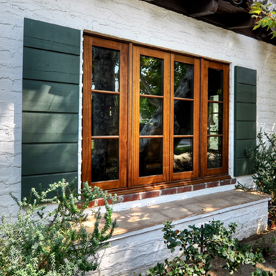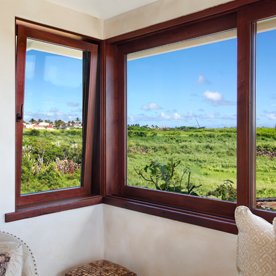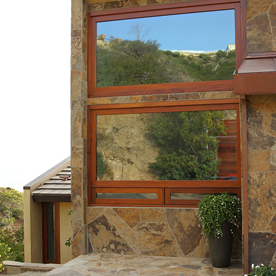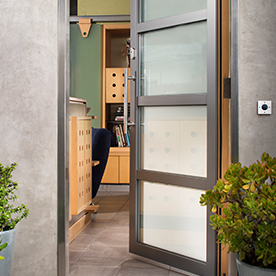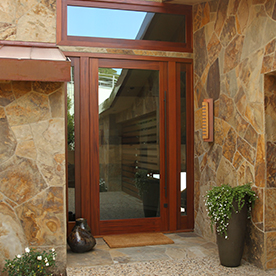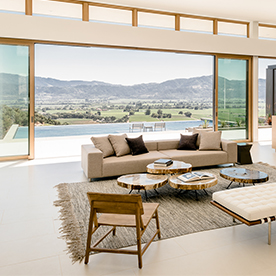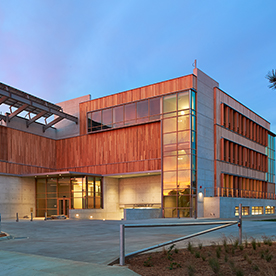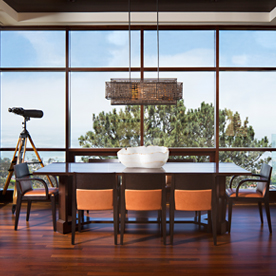Green Commitment

Wood vs. Aluminum
Wood is a natural, renewable resource, used throughout human history as a building material because of its durability, attractiveness, and ability to impart a sense of warmth and richness to an interior space. Wood reduces energy costs, providing 2000 times the insulating value compared to aluminum, according to the Temperate Forest Foundation. And wood is the only truly renewable resource, as forests are able to regenerate themselves within our lifetime. Much of the lumber that we use in our windows and doors comes from these sustainable, managed forest sources, and we utilize exclusively FSC-certified lumber for those projects that require it.
According to the Window and Door Manufacturers Association (WDMA): “Wood stands the test of time. It doesn’t naturally decay as many people believe and indeed has been found nicely preserved in 2,000-year old structures.”
Wood-frame windows on historic buildings have lasted for centuries—a testimony to wood’s incredible durability. Prior to the 1920s, wood was virtually the only window frame material available. Today, the most common reasons to replace wood-frame windows are not because of structural or material failure, but rather to:
- Replace single glazing with more efficient dual glazing;
- Improve weatherstripping to reduce air infiltration; or
- Provide exterior aluminum cladding to eliminate exterior repainting.
Aluminum windows are perceived as highly durable. The only weakness is in the construction of the thermal break, which is commonly engineered using a polyurethane material that is susceptible to shrinking and cracking over time. This can eventually cause glazing failure, increased air and water leakage, and a general degradation of the window unit’s structural integrity. Architects concerned about thermal break performance can reference the test method and performance requirements outlined in The American Architectural Manufacturers Association (AAMA) publication 505-98, “Dry Shrinkage and Composite Performance Thermal Cycling Test Procedure”.

Lamboo® Technologies
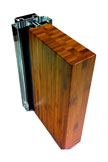 Pacific Architectural Millwork is proud to be a manufacturing partner with Lamboo®, Inc., the world leader in the engineered, high performance bamboo product market.
Pacific Architectural Millwork is proud to be a manufacturing partner with Lamboo®, Inc., the world leader in the engineered, high performance bamboo product market.
Lamboo has several physical and environmental advantages over typical construction materials:
- Their manufacturing processes uses 15% less embodied energy than that of engineered wood and 300% less embodied energy than aluminum and steel.
- Lamboo on average is 20% more stable than wood in moisture and temperature changes, 10 times stronger than wood in tension and 3 times stronger mechanically.
- Lamboo, Inc. has isolated 4 out of the 1600 species of bamboo to be used for all of its architectural and structural applications. Lamboo is produced from only mature plants, anywhere from their 6th to 8th year of life to allow for optimal hardness and strength.
- Bamboo sequesters 35% more carbon and produces 30% more oxygen than its tree counter parts.
Lamboo can be used on any of our premium door and window products, and their Renewall product is perfectly suited to our timber curtain wall system. Learn more about this revolutionary material and contact us to specify your next project with Pacific Architectural Millwork and Lamboo today!
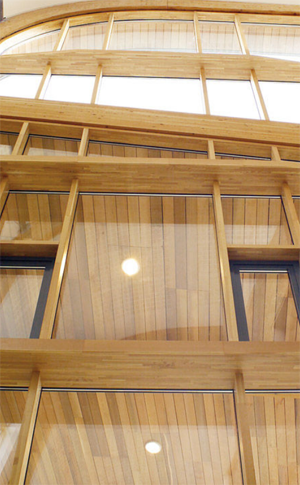
Green Process
 Our standard insulated glazing system reduces heat and noise transmission, helping you save on your heating and cooling costs. Also, our Low-E coating cuts down on UV radiation entering the home, which further lowers your energy bill and reduces damage to flooring and furniture from the harmful rays.
Our standard insulated glazing system reduces heat and noise transmission, helping you save on your heating and cooling costs. Also, our Low-E coating cuts down on UV radiation entering the home, which further lowers your energy bill and reduces damage to flooring and furniture from the harmful rays.
One of our manufacturing processes uses “engineered stiles,” which are finger joint cedar cores, surrounded by ¼” exterior exotic species laminate. This process conserves over 30% of the exotic exterior species, reducing the cost of the material, and improving the resistance of the stiles to warping.
Finally, at our manufacturing facility, we recycle over 90% of our waste products and collect our sawdust and woodchips for conversion to mulch.
When you choose to work with Pacific Architectural Millwork, you can rest assured that you are working with a company that is committed to responsible business practices and products that make sense for the environment, as well as for your bottom line.
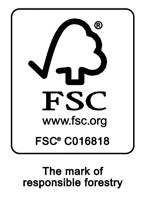
Ask for FSC® Certified Products

